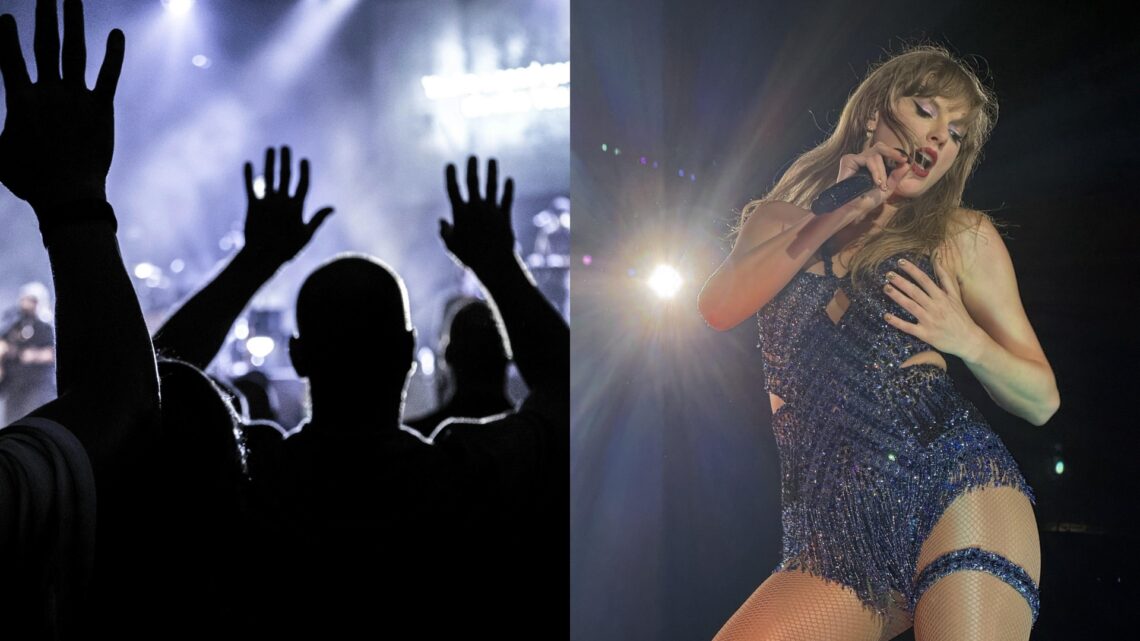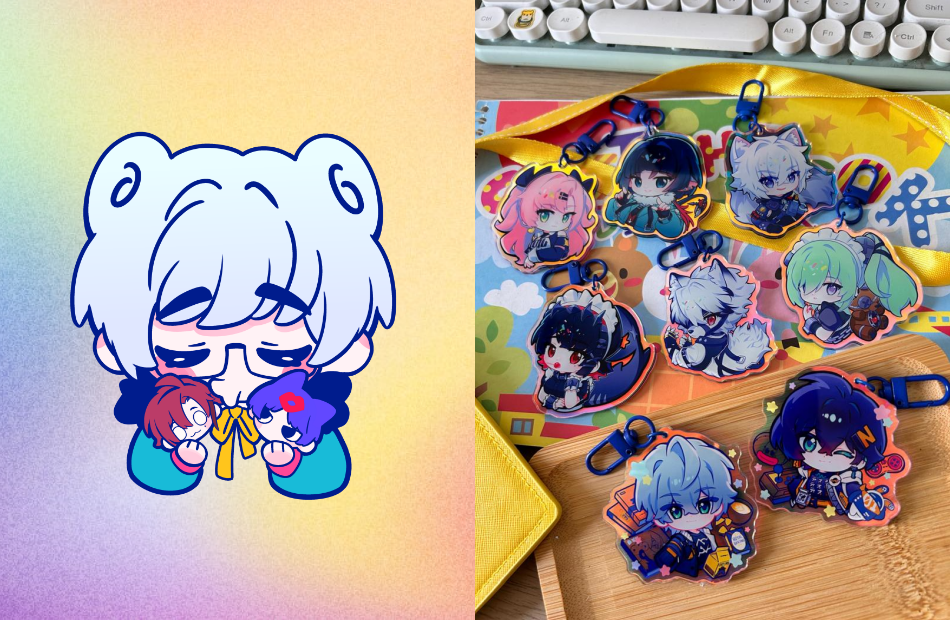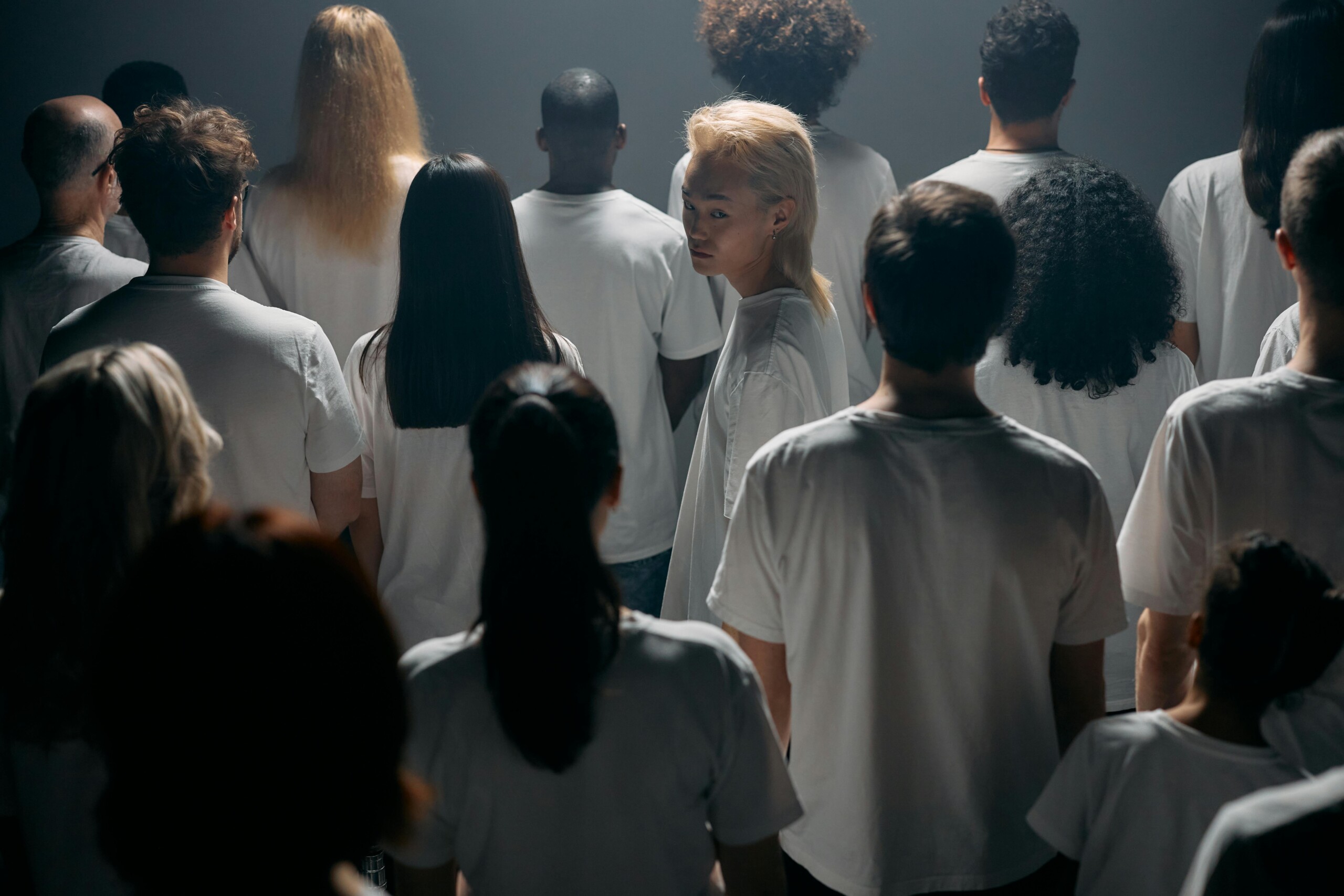Everyone loves celebrities, and many people have favourites of their own. It’s always exciting to see what famous people are getting up to, and getting new releases from talented actors or singers. They form parasocial relationships with these people on screen, whom they admire so much.
However, many fans take it to the extreme, forming an unhealthy attachment to their favourite celebrities. They view these people as their friends or are deluded into thinking that they have close personal relationships with these stars, obsessing over them.
What is a parasocial relationship?
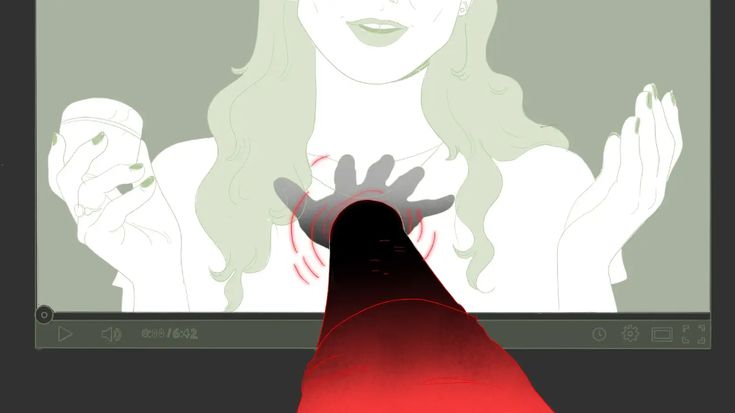
Before really exploring parasocial relationships, we need to understand what the concept of one is. According to this article, it’s a one-sided relationship. This is formed when one person puts energy and time into the relationship, while the recipient is completely unaware. The recipient often doesn’t know the person giving up energy at all.
For example, if someone is a Taylor Swift lover, they’ll put in a lot of effort, buying her merchandise, making time to go to her concerts, and perhaps even travelling to different countries to see her. On the other hand, the recipient – Taylor herself, has no idea who this person is. She sees millions of faces, and this dedicated fan is just one in a sea of many others.
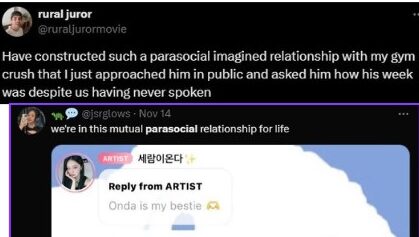
Parasocial relationships aren’t just formed with celebrities, but influencers or even fictional characters can be subject to it. It could be a person you know in real life, perhaps someone you see in passing, yet are drawn to and can’t stop thinking about.
Now one might be thinking “If it’s a one-sided relationship, it should be harmless right?”. But these kinds of relationships do have adverse effects, whether on the recipient or the one who’s formed the attachment. So let’s dive into it!
With celebrities, influencers or public figures
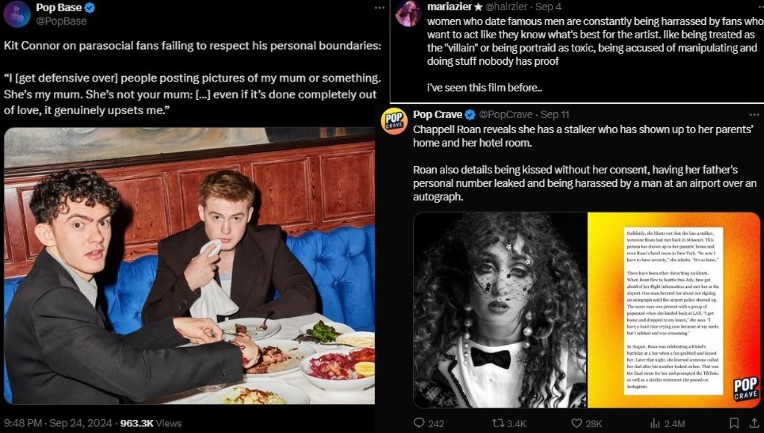
One of the most common targets for parasocial relationships would be celebrities. Public figures and their loved ones are constantly being updated online. Since there’s so much content covering them, whenever normal people are online, they’ll be seeing these people.
That’s why it’s so easy to form parasocial relationships with public figures. You can see what they’re eating for dinner, hear their opinions, and learn what they like and dislike. It’s easy to get attached.
With fictional characters

Another common target for parasocial relationships would be fictional characters. There are many stories floating around, whether in books, TV shows or even games. When we consume all of these, we’re watching these characters’ lives unfold in front of us. It’s only natural that we’d build an attachment to them, after all, you know so much about them now.
According to this article, the reason we become so attached is that we’ll start empathising with the characters on screen, feeling their emotions. This makes us perceive them as other human being that we can build a relationship with, which leads to forming a parasocial connection with them.
With people you know

The thing about parasocial relationships is that they only need to be considered one-sided. The other party doesn’t know you. So this type of relationship can easily apply to someone that you might know, who’s more reachable than a celebrity.
Maybe it’s a classmate or a coworker. Someone who doesn’t know you, yet when something good happens to them, you are also happy. Or if they’re in a bad mood, likewise, you are. So while more of a rarity, a parasocial attachment to someone you see in real life can also be formed.
When is it beneficial?
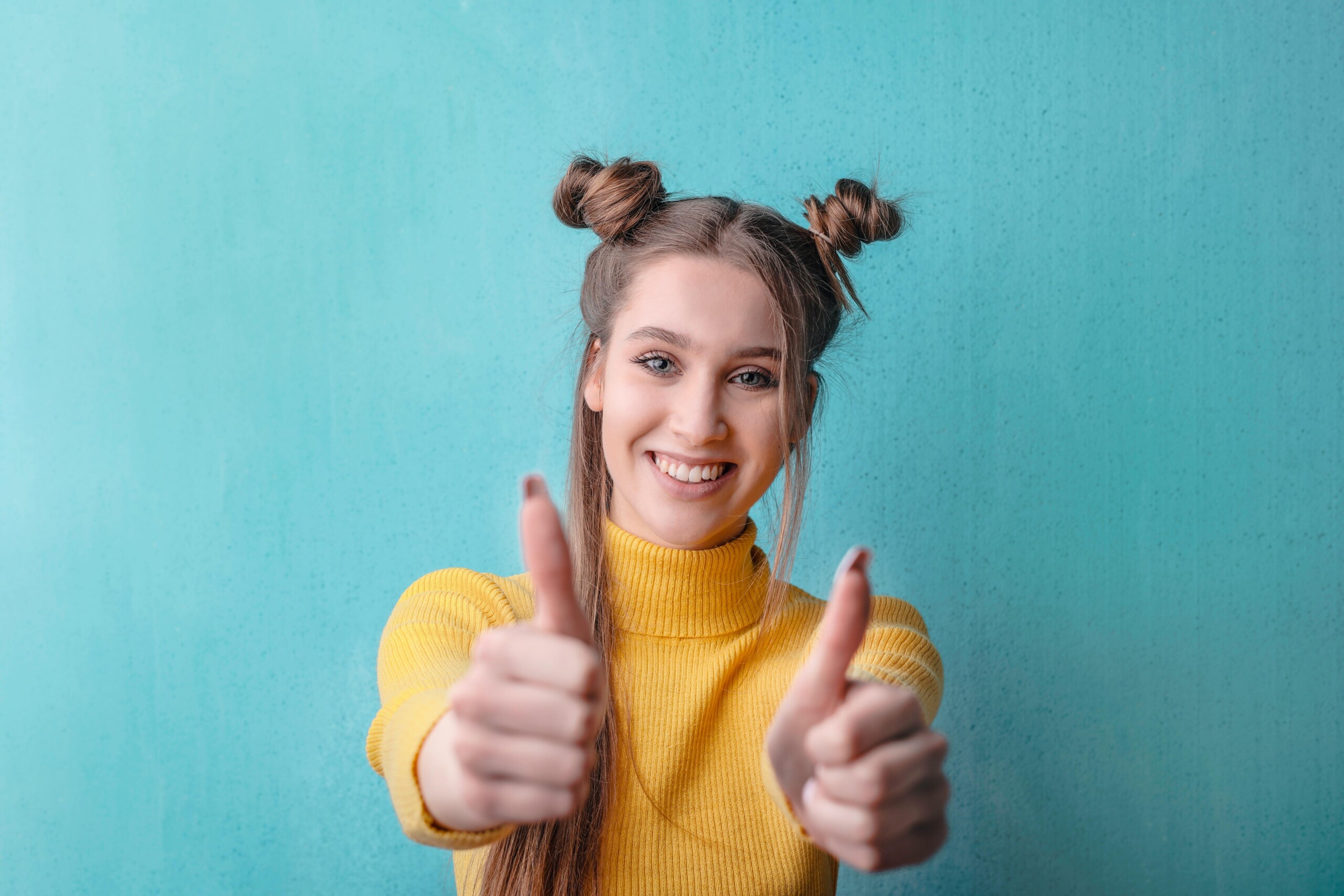
Now, parasocial relationships sound like a pretty bad thing. However, based on this journal article, they’re actually generally healthy! See, almost everyone has a parasocial relationship in some way or form. Whether it’s your favourite basketball team being happy when they win a game, or your favourite characters suffering through trauma, making you feel their pain. Parasocial relationships are everywhere, and it’s fine to have them.
This kind of connection helps you feel less alone, giving you the space to process something. A character could be going through a similar situation as yourself, giving you a bond with them, like you are being understood. It could also inspire you to be a better person! You see these people online, and you want to be like them, considering what they would do in your life. And you begin to work on yourself to be better on their behalf.
When is it problematic?
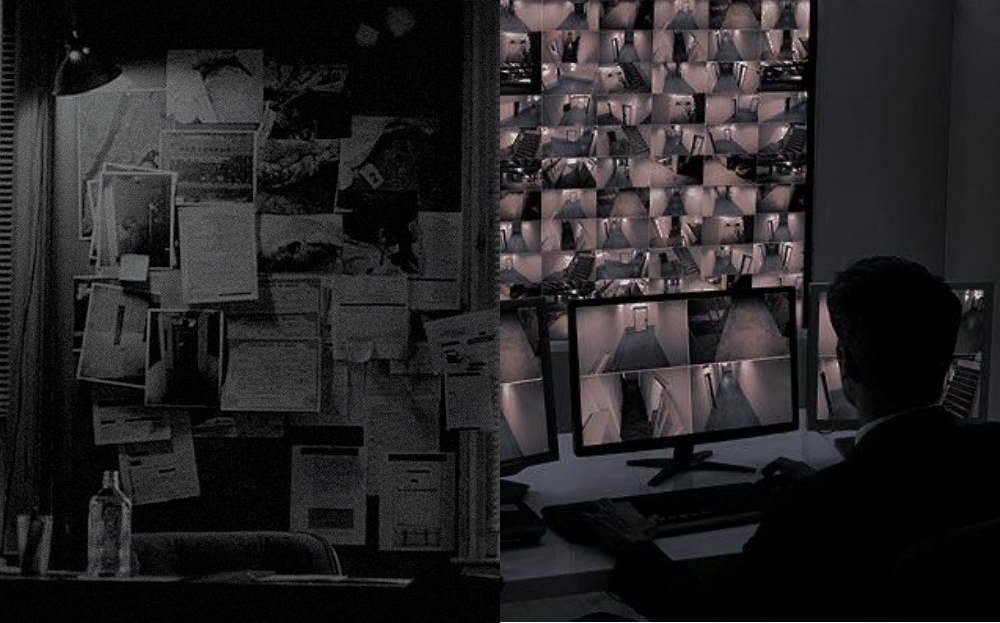
However, as with all things, there are dark sides and disadvantages. Parasocial relationships, while normal, can sometimes progress into obsession. They send a person spiralling down rabbit holes, eventually causing others harm or discomfort. So what is the problem with it?
The problem is that many fans take this relationship too far, trying to turn it into a reality with their favourite figures. However, something like this can be extremely unnerving to whoever is the target of the deranged fan’s affections. Streamers face this kind of harassment constantly, having to deflect.
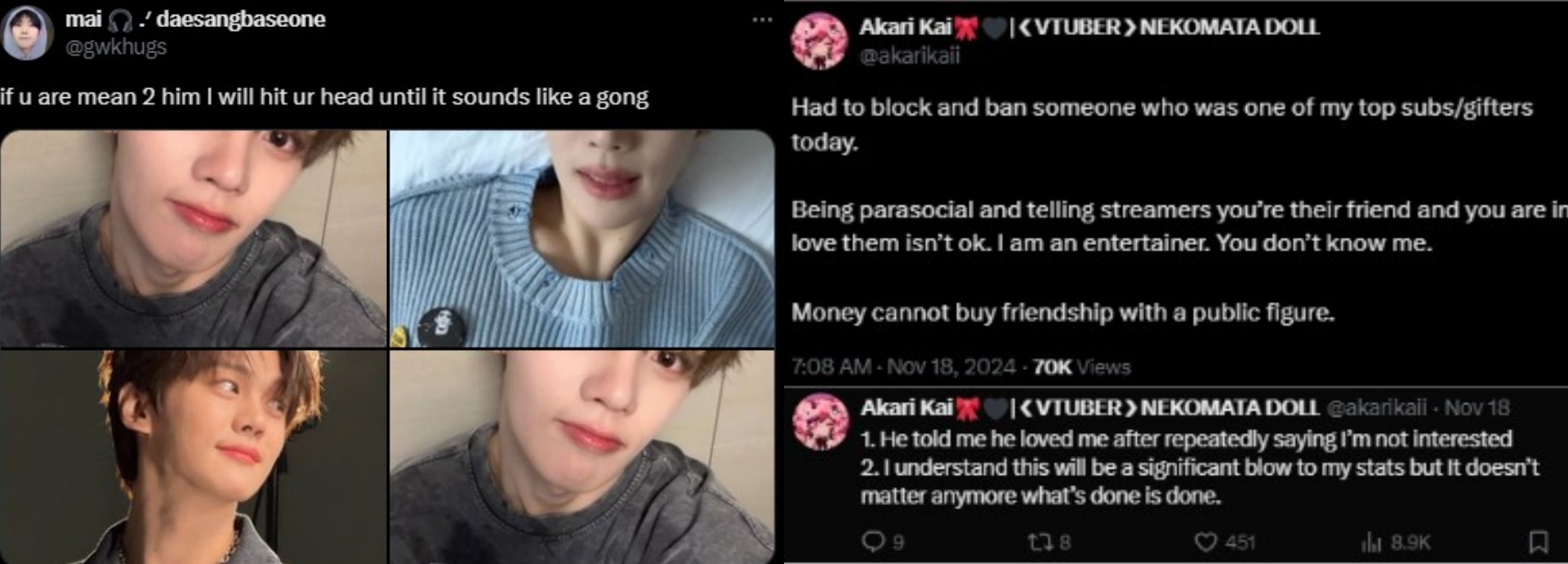
It sometimes leads to stalking and harassing celebrities. This creates a dangerous environment for the target, never knowing when this random person will turn up to assault them. Sometimes, this behaviour spreads outward, affecting others as well.
For example, K-pop stans can turn violent very quickly if their favourite artist is criticised even slightly. They target whoever had the gall to speak up, turning to mass waves of hate and even threats.

In conclusion, parasocial relationships, like everything else, are good in moderation. Be careful not to let your affection become an obsession with someone that you cannot have. Always be mindful that it’s a one-sided relationship on your part.
It may sound harsh, but the reality of a parasocial relationship is that the other party does not know you. And sometimes that’s for the best.
Sources: Find A Psychologist, Northern Valley News, Business Insider, Atlantis Press
Janae Lee contributed to this article.


